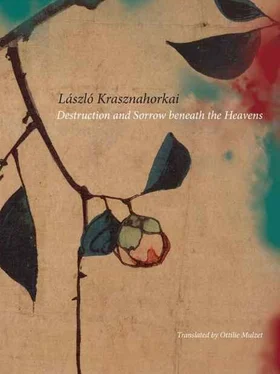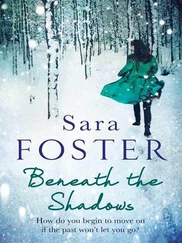Were the girls and boys together?
mama. Yes, usually they were together.
How many grades were there in primarily school?
mama. I went to school for six years from the time I was five, until 1945. Then the Japanese surrendered—15 August. The surrender. Then I began middle school.
Wait, let’s not go so fast! Mama, what did you learn in primary school?
mama. Poetry recitation, the national language, mathematics, from Grade Three there was also Japanese. . as for the rest, now. .
How did a class proceed?
mama. . And a little later. . we had history, geography. .
So how did a class proceed?
mama. We were taught from textbooks. The teacher explained. We wrote it down. But when the teacher explained, there was nothing for us to do, we had to pay attention, our hands behind our backs. We weren’t allowed to fidget, to whisper, nothing like that. . ( laughs ). .
Mama, I don’t understand how it worked. .
mama. Well, in Grade One the teacher wrote something on the blackboard, then we read it aloud, all of us. The teacher wrote, we read aloud. For example: Tian liang le — no, that wasn’t it. . ( concentrates ). . For example: Tian ping te yi an tian. . In the old days, there was a kind of pinyin, it was called zhuyin zimu. We had to somehow write down the pronunciation until we knew Chinese properly, in fact it’s the same today. . ( chants ) bo-po, like that, mo-fo. . de-te. . ne-le, it was like that, it’s the same as the pinyin everyone uses today, the transcription with English letters for the Chinese characters. . But we used the zhuyin zimu[173] system. We learnt this first. And after we learnt that, there were lessons and we had to take notes. In Grade One, they called it guoyu.[174] Now they call it yuwen, that is, language and literature. The first lesson was Tian liang le—‘The heavens have become radiant.’ That was the first lesson in my primary school! Yes — Tian liang le! The first lesson!
The first lesson? The very first one? And who says that Mama doesn’t remember anything. .!
mama ( proudly ). Yes. Tian liang le. Then the second lesson: Didi, meimei, kuai qilai—‘Younger brother, younger sister, quickly rise!’ That was the second lesson! I remember now! And the third lesson: Jie shuo—‘Little sister says’: Wo ai taiyang hong, wo ai taiyang liang, wo ai zaoshang de taiyang guang—‘I love the red sun, I love the sun’s brightness, I love the light of the rising sun.’ That’s how it went from one lesson to the next. Then there was tian as a sound: te-yian: tian — the sky — the teacher read it out, tian, we repeated after him, te-yi-an: tian. . The entire classroom echoed with our voices. Everywhere you could hear only our voices, we repeated it so much! First, that is, we had to brush up on it, then the next time the teacher would call us to come to the black board and write it down. He called on this or that pupil to come to the board. While they were writing, the others could take notes. But if you weren’t writing, you had to keep your hands behind your back. Your hands couldn’t be like this ( demonstrates ), only nicely behind your back. That was how you had to behave during classes. Also during maths. After the teacher finished his explanation, writing it down and pronouncing it, we chanted the same thing, like this ( recites, chanting each syllable ) yi jia yi dengyu ji, yi jia yi dengyu er. . ‘One plus one is how much, one plus one is two’. . And that’s how it went until the exams. . During the exams, they handed out a question sheet and we had to fill it in.
Did they teach you Confucius?
mama. I wouldn’t say that they taught Confucius but that Confucius was there in all of our lessons. In the yuwen class.
So they didn’t have you reading the Lunyu right away?
mama ( laughing ). Of course they did, how could they not have. . But the spirit of Confucius permeated the schoolbooks. And as we got older, there were more and more Confucian texts. But as for what Confucius meant in the old order — before the Japanese came — well, that was taught at home. Because at home we learnt the most basic laws of life, based upon the wisdom of Confucius. At home it was said, for example, that we must respect our parents and that we must help our siblings. And it was at home that we learnt how to do what is necessary. How to be a human being .
Mama, exactly what was it that they taught you at home?
mama. To study hard. To greet people in the proper way. To take care of ourselves. We were very obedient. We were taught to be diligent, so that later on we would be able to work independently for China. . And not to leave.
But what was there of Confucius in that?
mama. Everything. All of it. Actually it wasn’t necessary to teach us. Because we observed how the elders conducted themselves. They didn’t have to say: do this in this way, do that in that way, because we saw how they did it, and we came to know for ourselves what was right: to respect our elders, to help them. . There was also a book in my childhood, Kong Rong Rang Li ,[175] and the hero of that book taught us that we must give everything to the elders and to the little ones, that we must not keep the good things for ourselves. We knew the story of Kong Rong from a very early age, and that story, and others like it, taught us how to be good. For example, if you had four apples, you had to give the two bigger ones to your parents, the smaller one to your sibling, and then keep the smallest one for yourself. Parents also adhered to the principle of giving everything to their children. We did everything as we observed. We knew that we had to respect our parents. And we didn’t have to be taught that. We knew by ourselves. We knew .
Mama, were your parents religious?
mama. No.
And your grandparents?
mama. I don’t know anything about my paternal grandparents, I never saw them. I don’t think they could be called Buddhists, although Buddhism did make some impression on them. Some kind of impression on their lives. It influenced them.
What about Taoism?
mama. They didn’t believe in that either, neither my parents nor my grandparents. If they believed in something, then it would have been Buddhism. But we couldn’t really know what they believed in. All I can say is that the philosophy of Buddhism and Taoism had a certain effect on them. They were also strongly influenced by scientific and Western ways of thinking. They did not, for example, go to pray to the Buddha. They respected the fact that, in Buddhism, one has to be good. One’s heart has to be good, and one must not do evil. For evil brings punishment in its wake. Not that someone comes and punishes you, but that there will be punishment . .
Mama, who was considered a bad child?
mama. In those days we were afraid of robbery, because there were very many poor people, and there were those among them who had learnt bad ways — the heart of a poor man must remain good, but it happened that some turned into thieves. Every house had a flat roof in those days, and well, one of these bad children climbed up on top of the house, and from there he climbed down into the courtyard, and that is how he stole things. My mother kept chickens at home, and someone stole two yellow chickens! So we were afraid, and at night we had to tightly lock our doors and gates. We were afraid that someone would sneak in. Our teacher told us a story: he had a white shirt which he washed and then hung in the window to dry, but the window only had paper in it, and someone tore the paper and stole his shirt, our very own teacher told us this story. So how could we not have been afraid of thieves?
So, a bad person is someone who steals?
Читать дальше












